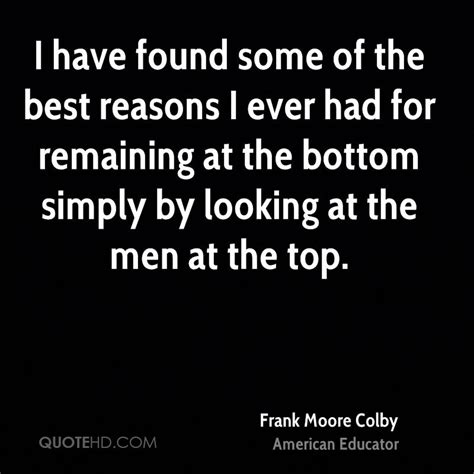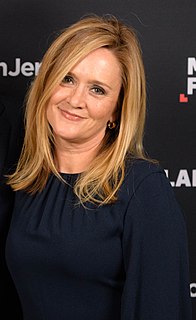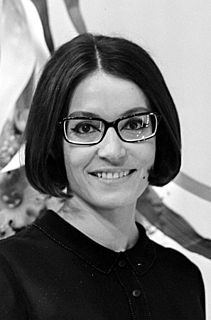A Quote by Frank Moore Colby
Clever people seem not to feel the natural pleasure of bewilderment, and are always answering questions when the chief relish of a life is to go on asking them.
Related Quotes
In general, questions are fine; you can always seize upon the parts of them that interest you and concentrate on answering those. And one has to remember when answering questions that asking questions isn't easy either, and for someone who's quite shy to stand up in an audience to speak takes some courage.
If you don't put the spiritual and religious dimension into our political conversation, you won't be asking the really big and important question. If you don't bring in values and religion, you'll be asking superficial questions. What is life all about? What is our relationship to God? These are the important questions. What is our obligation to one another and community? If we don't ask those questions, the residual questions that we're asking aren't as interesting.
I read all of the stories that people write about me. The ones that are really interesting are the ones where they actually write their take on me as opposed to just printing what I said, because they're asking similar questions so often, sometimes it just sounds like I'm answering the questions different intentionally.
If you don't understand, ask questions. If you're uncomfortable about asking questions, say you are uncomfortable about asking questions and then ask anyway. It's easy to tell when a question is coming from a good place. Then listen some more. Sometimes people just want to feel heard. Here's to possibilities of friendship and connection and understanding.




































